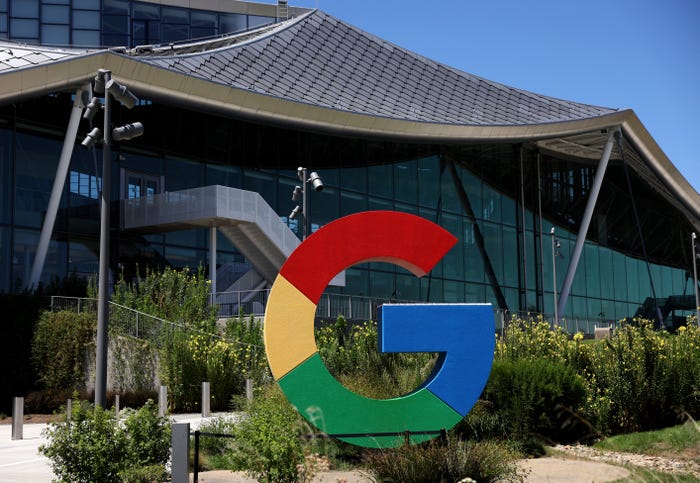## Lights, Camera, Google?! 🍿
You know Google for search, maps, and maybe even your smart home. But did you know they’re now secretly vying for a spot on your TV screen?
That’s right, the tech giant has been quietly building a massive movie and TV empire, and it’s got gamers buzzing. 🎮 Why is Google diving into the entertainment pool? Is it just another power grab, or could this be the next big revolution in how we experience stories?

Cuckoo” and “Sweetwater”: Case Studies in Google’s Subtle Influence

Google’s foray into film and television isn’t about overt product placement or flashy brand integrations. Instead, the tech giant is taking a more subtle approach, leveraging its new initiative, 100 Zeros, to influence the narrative landscape and cultivate a positive perception of its products among a crucial demographic: Gen Z.
One early example of this strategy is the indie horror film “Cuckoo,” produced by Neon and released last year. While Google didn’t seek public attention for its involvement, it provided financial backing in exchange for prominent placement of the 100 Zeros logo in the opening credits. This quiet investment signaled Google’s interest in supporting innovative and culturally relevant projects, such as those targeting Gen Z audiences. The film starred Hunter Schafer, known for her roles in “Euphoria” and “The Hunger Games” franchise, further solidifying Google’s alignment with a generation that heavily influences pop culture trends.
Building on this initial foray, Google and Range Media Partners recently announced a partnership called “AI On Screen,” aimed at commissioning short films exploring the theme of artificial intelligence. One of the commissioned shorts, “Sweetwater,” delves into the complex relationship between a grieving son and his deceased mother’s AI legacy. This project highlights Google’s intention to shape the narrative around AI, presenting it in a way that is both engaging and thought-provoking, potentially influencing public perception of this rapidly evolving technology.

Confronting the Apple Effect: Can Google Win Over Gen Z’s Hearts?
Google’s foray into film and television is partly fueled by a desire to counter Apple’s growing influence over Gen Z. Apple has successfully cultivated a coveted image of exclusivity and luxury, attracting a loyal following among young consumers. The iconic blue text bubbles associated with Apple’s iMessage have even become a cultural symbol, potentially making Android users feel excluded.
Apple’s devices are ubiquitous in pop culture, appearing in highly-watched shows like “Succession” and “Knives Out.” This consistent representation has further cemented Apple’s image as a desirable brand among younger generations. A recent Piper Sandler survey found that 88% of US teens owned an iPhone, highlighting the significant market share Apple holds among this crucial demographic.
Beyond smartphones, Google’s search engine, once a dominant force, is losing ground to younger generations who increasingly rely on AI-powered platforms, Amazon, and TikTok for information and entertainment. Google recognizes the need to adapt and innovate to maintain relevance with this evolving consumer base.
By investing in film and television, Google aims to subtly shift perceptions and associate its products with positive experiences and narratives that resonate with Gen Z values.
Gaming’s Place in the Google Ecosystem: Bridging the Gap Between Entertainment and Technology
Potential for Cross-Promotion: Bringing Google’s Tech to Gamers
The gaming industry presents a unique opportunity for Google to showcase its technological advancements and integrate its products seamlessly into the entertainment experience. Gamers are early adopters of technology and often receptive to innovative features.
Imagine a future where Google Stadia leverages the power of Immersive View to create breathtaking virtual environments, or where Google Assistant becomes an indispensable in-game companion, providing real-time information, guidance, and interaction.
The Rise of Interactive Storytelling: Blurring the Lines Between Games and Film
Google’s investment in “AI On Screen” suggests a broader interest in exploring the intersection of technology and storytelling. This trend is already evident in the gaming world, where interactive narratives are becoming increasingly sophisticated and immersive.
Games like “Detroit: Become Human” and “The Walking Dead” demonstrate the power of player choice in shaping the narrative, blurring the lines between passive consumption and active participation. Google could leverage its AI expertise to create even more compelling and personalized interactive storytelling experiences.
Implications for the Future: A More Immersive, Tech-Infused Entertainment Experience
The Potential for Enhanced Game Experiences: Leveraging Google’s Tech for Innovation
Google’s vast technological resources could significantly enhance the gaming landscape. Imagine games that utilize spatial computing to create truly immersive environments, or those that integrate AI to generate dynamic and unpredictable storylines.
Google could also leverage its expertise in cloud computing to provide seamless multiplayer experiences and eliminate the limitations of traditional hardware.
The Evolving Role of Players: From Consumers to Active Participants in the Narrative
As technology advances, the role of players in interactive entertainment will continue to evolve. Google’s initiatives suggest a future where players are not merely consumers of content, but active participants in shaping the narrative and influencing the outcome.
This shift towards player agency has the potential to revolutionize the gaming industry, creating more engaging, personalized, and ultimately more meaningful experiences.
Conclusion
Google’s foray into the movie and TV business might seem like a sudden move, but as Business Insider reveals, it’s been brewing for years. Driven by a desire to diversify its revenue streams, leverage its vast data and AI capabilities, and capitalize on the ever-growing streaming market, Google has quietly assembled a formidable force. From its YouTube Originals to its investment in film studios and production companies, the tech giant is strategically positioning itself to become a major player in the entertainment industry.
This shift has significant implications for both Google and the entertainment landscape as a whole. Google’s deep understanding of user behavior and content preferences, combined with its advanced AI technology, could revolutionize content creation, distribution, and even personalized viewing experiences. For traditional studios and networks, this presents both a challenge and an opportunity. Adapting to Google’s data-driven approach and embracing new technologies will be crucial for survival in this evolving ecosystem. The lines between tech and entertainment are blurring, and the winner in this new era might not be the one with the biggest budget, but the one who best understands and caters to the ever-changing desires of the audience.
As Google continues its march into the world of movies and TV, one question looms large: will our screens become even more personalized, predictive, and perhaps, even more addictive? The answer lies in the hands of consumers and the choices they make, but one thing is certain: the future of entertainment is being rewritten, and Google is at the forefront of the revolution.